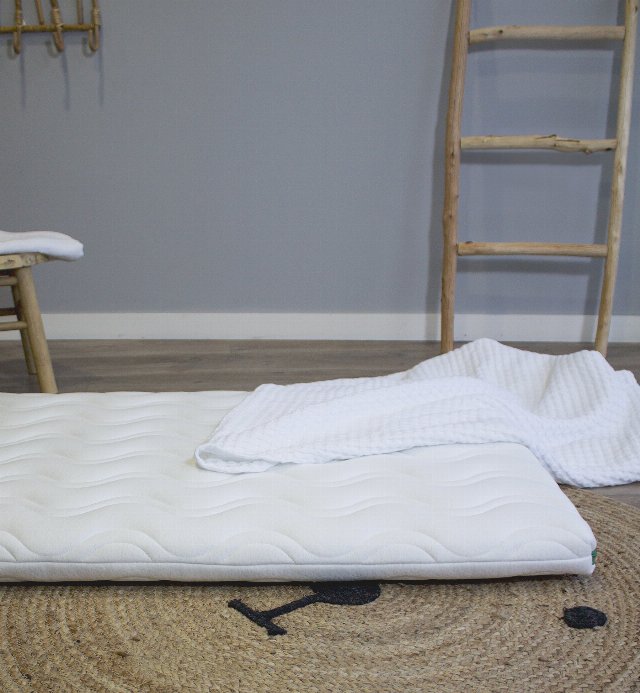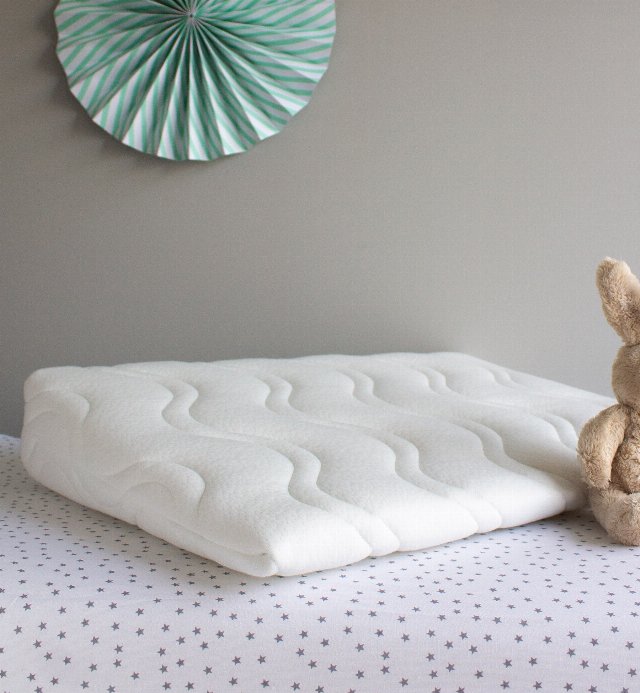As they grow, newborns can undergo many changes in a very short space of time. Sleep attacks or sleep regressions are a case in point. Just when they seem to have settled into a restful pattern, the routine is suddenly disrupted and altered. This is when parents, especially new parents, start to worry: will this become normal, when will they start sleeping like before again, how can they overcome this crisis? First of all, don't forget that it's essential to observe your child. So, before this period arrives, pay attention to everything your child does. The more you know about him/her, the better prepared you'll be to overcome these sleep crises.
What is a baby sleep attack?
Baby sleep crisis" is a colloquial term used to describe periods when a baby's sleep patterns undergo significant and often difficult changes for parents. These periods are often associated with important milestones in the baby's development and can manifest themselves in a variety of ways, such as more frequent night-time awakenings, difficulty falling asleep, resistance to naps or changes in sleep duration. These changes are normal and are often a sign of healthy child development. However, they can be a challenge for parents, as they affect routine and rest. It's important to approach these periods with patience and consistency in the sleep routine. In addition, it is always advisable to consult your paediatrician if you have any persistent concerns about your baby's sleep, to rule out possible health problems and obtain specific advice.
When do sleep attacks occur in babies?
Here are the most common ages at which your baby may experience sleep attacks.
The 4-month sleep attack
Around the age of 4 months, many babies experience a transition in their sleep patterns. They may move from light to deeper sleep, waking up more often during the night. at this stage, the phases and cycle of sleep evolve, making their sleep cycles more complete.
The 8-month sleep crisis
at 8 months, some babies may experience changes in their sleep patterns due to their physical and cognitive development. They may be learning to crawl, stand, sit... which can affect their sleep patterns. This is also the time when they begin to be able to stay awake longer, and may go from 3 to 2 naps.
The 12-month sleep crisis
This is not a common sleep crisis, but every baby is unique. at 12 months, it's usually linked to the transition from a more fragmented, scattered sleep pattern to a more regular, consistent schedule. at this age, many babies can go from two or three naps a day to a single nap, consolidating their nocturnal sleep. In addition, at this time, children can develop their motor skills, such as walking in a more confident and coordinated way. This new level of physical activity can affect their fatigue and therefore their sleep.
The 18-month sleep crisis
at this age, changes in diet, separation anxiety and language development can influence sleep. They resist sleep again, wake up often and don't want to nap.
The 24-month sleep crisis
This last crisis usually occurs for a variety of reasons: to remove the diaper and teach the child to go to the bathroom, because nightmares or night terrors may start to appear, because they are learning a new dynamic, among many others. at this stage, sleep periods become longer and longer .
How long does a baby's sleep attack last?
The duration of "sleep attacks" in infants can vary considerably from one child to the next. They generally last between 2 and 6 weeks, and affect both naps and nights.
What causes sleep regression?
Sleep regression in babies can be due to developmental milestones and periods of neurological change, such as learning to crawl or walk, teething, changes in routine, separation anxiety, emotional developments and sleep maturation. These phases are generally temporary and part of a baby's normal growth.
How can I tell if I'm having a sleep crisis?
To know if a baby is going through a sleep crisis, you need to observe changes in his sleeping habits and behavior. Here are a few signs that may indicate a baby is going through a sleep crisis phase:
- Changes in sleep patterns: if the baby, who used to sleep well, starts waking up more frequently during the night, or has trouble falling asleep, this could be a sign of a sleep crisis.
- Resistance to naps: if the baby used to take naps easily, but now shows resistance or has difficulty sleeping during the day, this may be a sign of a sleep crisis.
- Changes in behavior during the day: changes in behavior during the day, such as irritability, a change in appetite or an increased need for comfort, may be signs that something is affecting your baby's sleep.
- Development of new skills: if the baby is reaching new developmental milestones, such as learning to roll over, sit up, crawl or walk, this progress may be linked to a sleep adaptation phase.
- Changes in routine: alterations in daily routine, such as changes in environment or diet, can also trigger periods of sleep adaptation.
It's important to bear in mind that these changes are normal in a baby's development, and that not all babies experience sleep crises in the same way. It is always advisable to consult your paediatrician if you have any concerns about your baby's sleep, or if problems persist, for specific advice and reassurance...
Why are sleep rituals important?
Essentially, because they reassure them: if we repeat the same habits every day, they can anticipate what's coming next, and their anxiety levels are reduced. But these rituals don't have to be complicated, far from it. Bath time, a soft, warm romper under the pajamas, a little mood music or simply your voice singing a song can be enough.
Does the bedroom influence your baby's sleep?
More than the bedroom, what's in it. In other words, the mattress, the bed and the sheets. At Kadolis, we believe that all babies deserve a dream sleep, and that's why it's essential to surround yourself with noble, natural materials that are best suited to excellent sleep quality. That's why we refuse all chemical treatments. What's more, we have obtained the most demanding certifications: OEKO-TEX® standard 100, Ecolabel, Eurolatex.
Details make the difference, and sleeping on a synthetic mattress is not the same as sleeping on a natural mattress.
- By choosing the latter, you enable a healthier sleep and make the air in the room cleaner. What's more, natural materials such as coconut or TENCEL™ repel dust mites and bacteria and are also anti-allergenic without the need for additional treatment.
- The same applies to bed linen. Not all fitted sheets take such good care of your baby's delicate skin. Our collection does, because it's organic and gives babies a healthy night's sleep.
What do you need to know about a 4-month-old baby's sleep crisis?
Here we answer the most frequently asked questions about sleeping habits at this age.
How long should a baby aged 4 to 7 months sleep during the day?
As we've said, this period is full of changes, and one of them is that babies start to spend more time awake during the day. Increasingly aware of everything going on around them, they are also more easily distracted, making naps and night-time sleep more difficult. In fact, they don't want to go to sleep because they're having fun when they're awake. Even so, babies should sleep 12 to 16 hours a day, with 2/3 of naps being of varying duration (30 minutes or 2 hours).
Is it normal for my 4-month-old baby not to fall asleep on his own?
Yes, it's perfectly normal, and it'll probably be even more difficult for him if he's used to falling asleep at the breast, with a bottle or in your arms. If you want to speed up this process, you can call in infant sleep specialists. These professionals work to help them acquire new sleep habits, fall asleep on their own and have fewer night-time awakenings.














Leave a comment